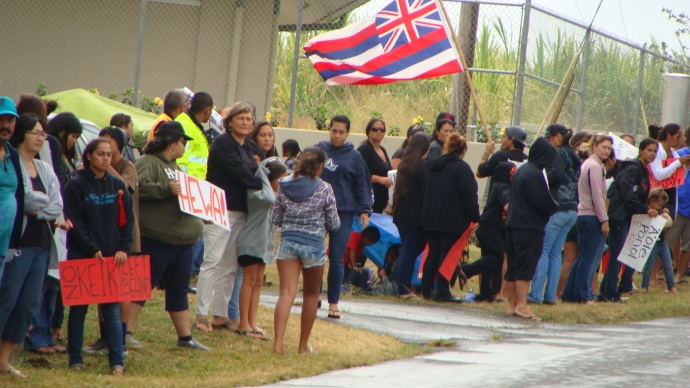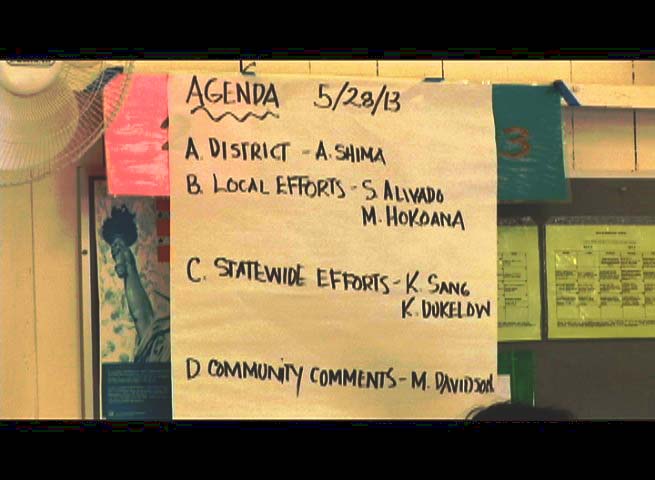Meeting Explores Conversion of Pāʻia to 100% Immersion

Keiki were among those holding signs at a demonstration in May that was organized in protest of a lottery for placement in the Hawaiian language immersion kindergarten at Pāʻia Elementary School on Maui. The lottery was subsequently cancelled. Photo by Wendy Osher.
By Wendy Osher
The second of two stakeholder meetings to discuss a plan for the proposed transition of Pāʻia Elementary School into an entirely Hawaiian speaking immersion site takes place tonight.
The meeting, hosted by Nā Leo Kākoʻo o Maui and Nā Leo Pūlama runs from 6 to 7:30 p.m. at the Pāʻia Community Center.
Meeting organizers say that as interest in Hawaiian immersion education continues to grow, “the need for an entirely immersion school has become apparent.”
The goal, they say, is for Pāʻia School to be the first in Maui County to deliver instruction across all disciplines exclusively in the Hawaiian language.

Agenda items from an earlier meeting that discussed a controversial lottery that was subsequently cancelled. Photo by Wendy Osher.
Hawaiian language immersion now represents nearly 70% of the school student population, at a campus that once enforced an English-only policy following a ban in 1896.
The meeting comes on the heels of demonstrations earlier this year when school administrators planned a lottery for placement in Pāʻia Elementary School’s Hawaiian Immersion kindergarten program.
The lottery was subsequently cancelled with opponents arguing that the lottery would have denied children the right to Hawaiian language immersion education and restrict the growth of language revitalization.
Supporters of conversion of the campus into an all-immersion site say the goal of immersion is language revitalization. “That’s best achieved in environments where students learn, eat and play in a second language,” a flyer announcing the upcoming meetings stated.
Meeting organizers note that additional classrooms have been added at the 1st and 2nd grade for the past 3 years to keep up with the growth in immersion; and the student-to-teacher ratio in 3rd and 4th grade immersion classes are larger than recommended due to a lack of space and teacher positions at the school.
The Hawaiian Language Immersion Program at Pāʻia School is non-exclusive, and accepts all children from Central Maui between kindergarten and 5th grade, regardless of race, ethnicity, or cultural identity.
Meeting organizers say there is currently no plan in place and that the meetings are the beginning of developing a plan for advocacy.












